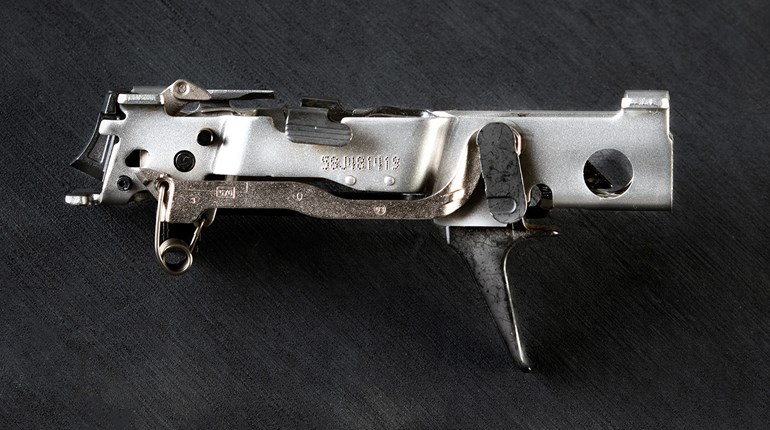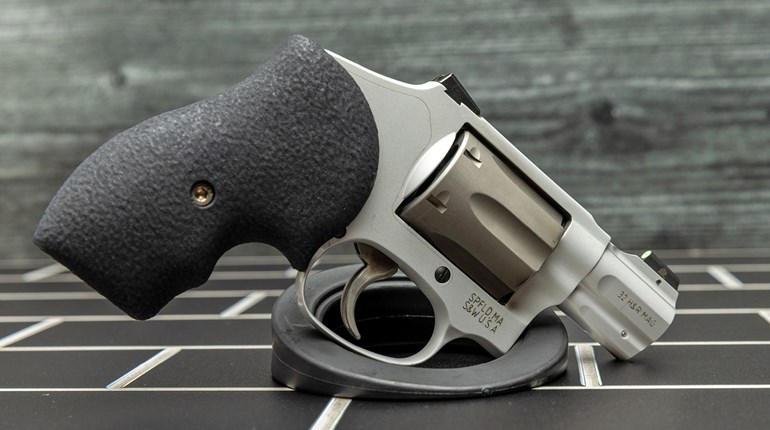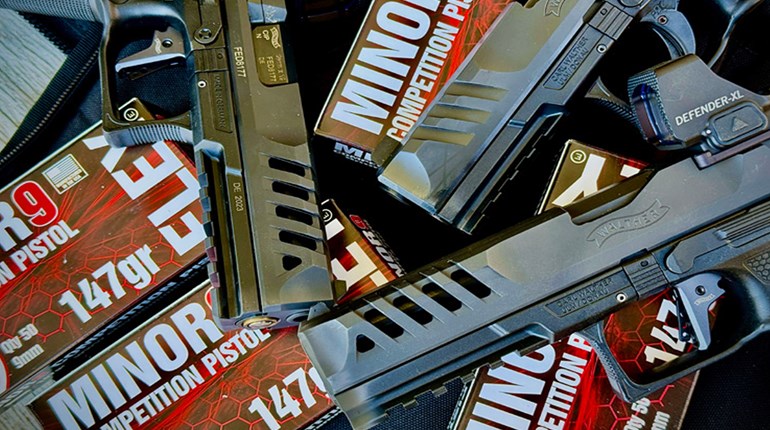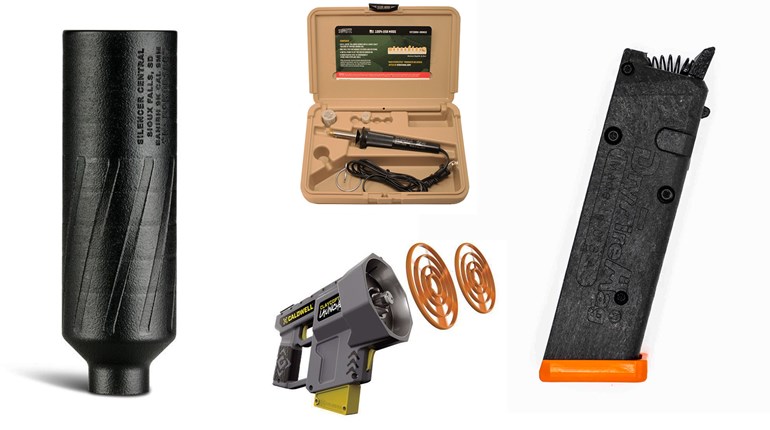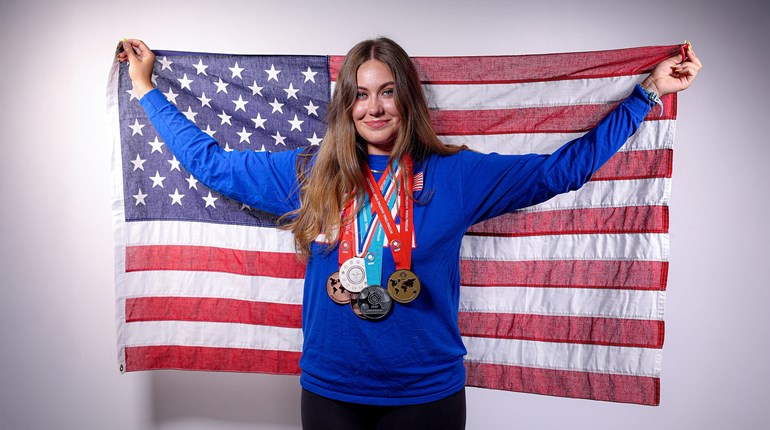
As the dog days of summer hove into view here in Indiana, I realized that I hadn’t been to gun school since the chill of winter was still lingering in the air. Since trying to run a pistol while your hands are slick with sunscreen and sweat is dripping behind your eye pro is as much a part of the Midwest gun school experience as freezing on an early March morning, I was looking for a class.
Fortunately, I was contacted by Scott “Jedi” Jedlinski of the Modern Samurai Project, asking me if I’d be interested in a two-day class at Deer Creek Conservation Club, just outside Marion, IN. July isn’t usually peak Hoosier Humidity season, but it’s close enough, so of course I took him up on the offer.
The class in question, which he titles “AIWB + Red Dot Pistol: The Path to Performance” was a curriculum that interested me. I’ve been losing weight and have been interested in the advantages AIWB carry offers in both speed and weapon retention. As for the red-dot part? Well, my eyes aren’t getting any younger, and a slide-mounted mini red-dot scope (MRDS) isn’t going to be merely an option for me for much longer, especially out past 20 yards or so.
This particular class was small, with only eight students, so the round count was therefore high. I tried to play it cautious on strings where the shooter was allowed to fire as many rounds as they wanted, and fell out of line here and there to grab some photos, and I still burned up more than 400 rounds a day.
While technically one class, the curriculum was divided into Jedi’s methods of presenting from AIWB and general shooting style on Day One, while Day Two was all about efficiently running the red dot, and fine-tuning presentation and recoil control to get the most out of it.
The only red-dot-sighted gun I had that was suitable for the class is a Glock G34 Gen4 MOS with a dual-illuminated Trijicon RM08, and the only AIWB holsters I had that were long enough for the G34 were set up for carrying with a weapon-mounted light (WML), and I didn’t want the added hassle of the light in class, so I was in a quandary. Fortunately, Tom Kelley at Dark Star Gear heard of my plight and sent me one of his Orion holsters with the Dark Wing claw and a foam muzzle pad.
For Day One, which was all about AIWB, my plan was to use my old Robar Custom Gen2 Glock G17, and then on Day Two I would switch over to the G34 with the dot.
One thing I’ve noticed is that more-demanding classes, physically or skill-wise, tend to be filled with eager-to-learn “Type A” personalities, and this one was no different. Class was scheduled for 8:00 a.m. and if you got there at one minute after eight, you’d find the rest of your classmates already there, loading magazines and waiting on the slowpoke. The upside of this is there’s generally plenty of hustle when it comes to things like resurfacing or replacing targets, rather than a bunch of people standing around jawing and waiting for the host and instructor to do the grunt work.
The morning of Day One started off with a clear safety brief, covering basic safety, a medical briefing and various specific range ground rules.
From there, Jedi began explaining his philosophy of presenting the pistol from AIWB and controlling the gun in recoil. Coming from a background of conventional sports like basketball, as well as martial arts such as Brazilian Jiu Jitsu, Jedlinski emphasizes efficiency of movement as well as relying on leverage and the body’s own resistance to control recoil as much as possible.
Jedi demonstrated several methods of quickly and reliably clearing a closed-front cover garment, and pointed out that, no matter how small or distant the target, a fast and efficient draw was still necessary. Wasted motion is the enemy here, and Jedlinski pointed out all the various shoulder rolling, leaning back, turtling of the head and other movements people inject into their draw rather than just pulling the gun from the holster and raising it quickly and efficiently to the eye line.
One thing that was new to me was that Jedlinski is a huge fan of the “claw grip” for the draw. This is basically the grip I already use to holster, with the thumb across the back of the slide, to control the hammer on a DA/SA gun or the Striker Control Device on my Glocks.
Jedlinski contends that it allows for a faster and smoother draw from AIWB since you’re not having to jam your strong-hand thumb between your tummy and the gun and then drag it along your abdomen as you draw. Instead, the thumb falls naturally into position as you hit about the “two” of a four-count draw. It sure can’t slow the presentation down at all, since doing a cold demonstration on the afternoon of Day One, Jedi managed a .88-second concealed draw on 25-yard steel.
On Day Two, Jedlinski explained his theories about the dot, that people tend to waste time overconfirming the dot at closer ranges—distances where they’d readily accept a “Well, that’s good enough” flash sight picture from irons. After some drills to fine-tune grip and demonstrate that a well-controlled 9 mm duty pistol can be fired without losing sight of the dot between shots, we moved to close work. He demonstrated a handful of techniques for using the RMR for an extremely coarse sight picture at close range.
Day Two’s coursework went on to transitioning between stationary targets, before shooting on the move, and then transitioning between targets while shooting on the move. The day closed out with shooting Jedi’s standards drills, which have a reputation for rigor.
Though a hot and sweaty weekend, it was time well spent, and I left with a lot to practice. I’ll see how well I do against his standards when he swings through again next year.












